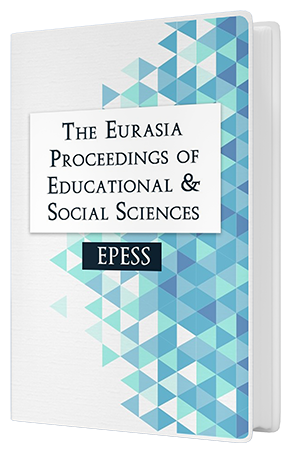THE COMPARISON OF COLLEGE AND UNIVERSITY STUDENTS` LEARNING STRATEGIES FOR CHEMISTRY COURSES
Keywords:
chemistry, higher education, learning strategiesAbstract
It is essential to know, comprehend, apply, analyze, synthesize, and evaluate the physical science (chemistry, earth science, physics, etc.) for the science and engineering students. The purpose of this study was to compare the tendency of the higher education technical vocational school and engineering students to physical science. The research was conducted with 166 students. Data were collected using Learning Strategy Survey (LSS). Cognitive/metacognitive strategies (CMS) and resource management strategies (RMS) of the students were compared with the help of this survey designed for chemistry courses. The results presented that the usage of learning strategies of the higher education technical vocational school and engineering students were similar in terms of chemistry. The students` thoughts revealed that the chemistry is not accepted as a key-course for their major field and they preferred to memorize the content of the course without any comprehension. The detailed findings and suggestions were reported in the study.Downloads
Published
Issue
Section
License
Copyright (c) 2015 The Eurasia Proceedings of Educational and Social Sciences

This work is licensed under a Creative Commons Attribution-NonCommercial-ShareAlike 4.0 International License.
The articles may be used for research, teaching, and private study purposes. Any substantial or systematic reproduction, redistribution, reselling, loan, sub-licensing, systematic supply, or distribution in any form to anyone is expressly forbidden. Authors alone are responsible for the contents of their articles. The journal owns the copyright of the articles. The publisher shall not be liable for any loss, actions, claims, proceedings, demand, or costs or damages whatsoever or howsoever caused arising directly or indirectly in connection with or arising out of the use of the research material. All authors are requested to disclose any actual or potential conflict of interest including any financial, personal or other relationships with other people or organizations regarding the submitted work.




